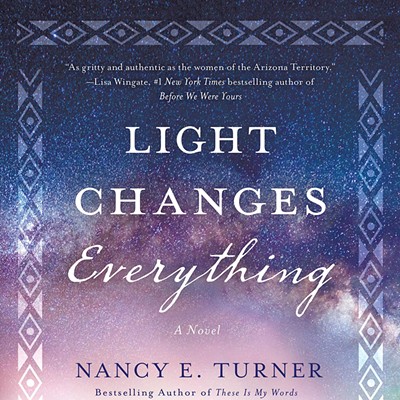THE TITLE OF DORIS Dörrie's new exploration of midlife crisis asks the semi-rhetorical question, Where Do We Go From Here?
Answer? To Bookman's, to unload this bad boy as soon as possible. Not a keeper, this.
Not saying there are no transcendent passages. Like a prospector who finds a sliver of gold a year, the reader reads from gem to gem, hoping it'll add up to something later.
The good news is, there's a nugget on almost every page. The bad news is, Dörrie never fully explores them. Consequently, there are lots of, "Yeah, I remember days like that" moments, but very few, "Wow, I've never looked at it quite that way before--thanks, Doris!" ones.
German author/filmmaker Dörrie is good at describing things we all live, in words we cannot all find. Director of Men and the recent Seeking Enlightenment, Dörrie is also the author of several novels and collections of stories, including Love, Pain and the Whole Damn Thing and What Do You Want From Me?
Translated from German by John Brownjohn, her latest book has a sassy, colloquial style one hopes is faithful to the original. But the premise is far too familiar. Main character Fred Kaufmann is the middle-aged owner of a string of Starbucks-like shops. He feels mild guilt that he and his emotionally estranged wife, Claudia, exchanged their "politically correct little chain of vegetarian snack bars" for a slick, more lucrative franchise. It's a metaphor for his entire life, that compromise. Wherever he looks, especially in his own mirror, he sees "sell out," or the fallout from it.
One casualty is his teenage daughter, Franka, for whom Dörrie reserves some of the book's most riveting and really "right" descriptions.
"These days Franka's laughter is as rare as a hot summer in Germany," she writes. "She eyes us as expressionlessly as a polar bear whose body language conveys no hint of its intentions. ... Seeing that big, peculiar black haired creature on the back seat, I try to reconcile it with the baby it used to be, but I can't. There isn't the smallest connection between the two. Except, perhaps, the fact that I found the infant as alien now as I find the 16-year-old."
Most boomer parents could move into that moment and hang awhile. Likewise, we remember nights like this--music, mood-altering substances and all:
"How often we used to drive her around ... at nights when nothing would stop her crying except a car ride. I sometimes imagined, during those phantasmal rides through the deserted city, that the only other road users were equally desperate parents and their infants. ... We listened to the Talking Heads and Tom Waits and Van Morrison, and sometimes Claudia would roll a joint and rest her head on my lap ... ."
For his unfaithful wife, Fred feels ... a complex muddle of things. "I've mislaid my love for her, like a key," he sighs, "and simply can't remember where I saw it last. Not that I've genuinely been looking for it."
These passages welcome us into that vast Boomer's Club of the Mind to which that generation so often retreats to celebrate and console itself, both. "The minute you use that phrase, 'in the old days,' you're old," Fred observes. He longs to be "so young and free from the wounds that gather on ageing people like a personal garbage dump on which we crouch."
There are a few surprises as the plot unfolds. Some occur after the perpetually sullen, whining Fred goes to an ashram--not for enlightenment, but to confront the Tibetan guru Franka wants to marry before finishing high school. But after a few days of brown rice and silence, Fred has a few transcendent moments of his own, decides Franka could do worse, discovers his wife's lover is his roommate and almost makes love to the lover's wife.
In the end, he decides he could do worse, too. In a kind of bemused daze, he begins to live the concept of "impermanence," learned at the ashram, albeit grudgingly. You know: "Be here now," or something like that. To Dörrie's credit, he doesn't go gently into that new life. He's been through the motions, but we're not sure the lessons beneath have been learned. Neither is Fred.
Like him and so many of that generation, this book meanders through our collective experiences with glib virtuosity we forget as soon as we put it down. Swaddled in its dust jacket "map," Where Do We Go From Here is a flawed hejira through middle-age angst, passing through landmarks and landmines we know, and then dumping us off by the side of the crisis, blinking and bewildered.
Next stop ... Bookman's.








